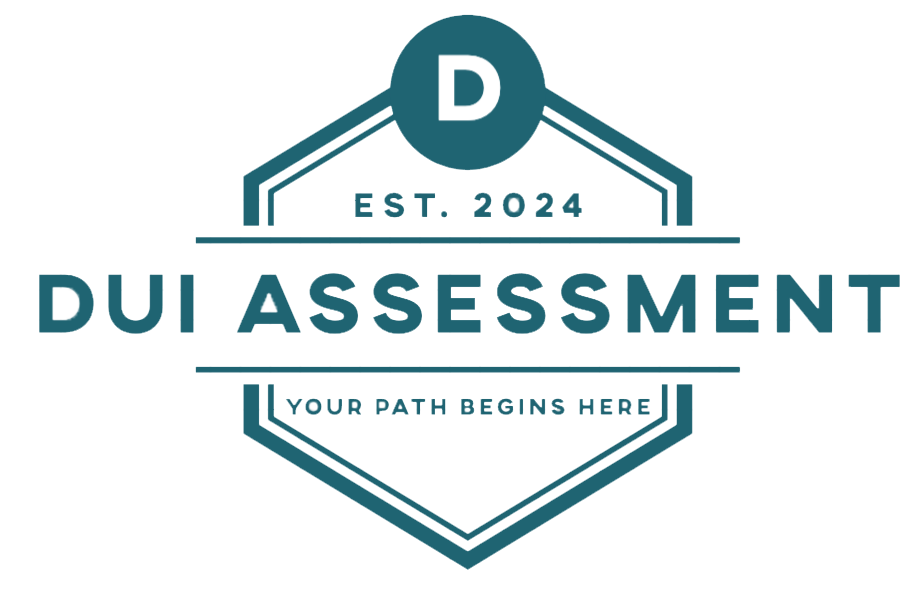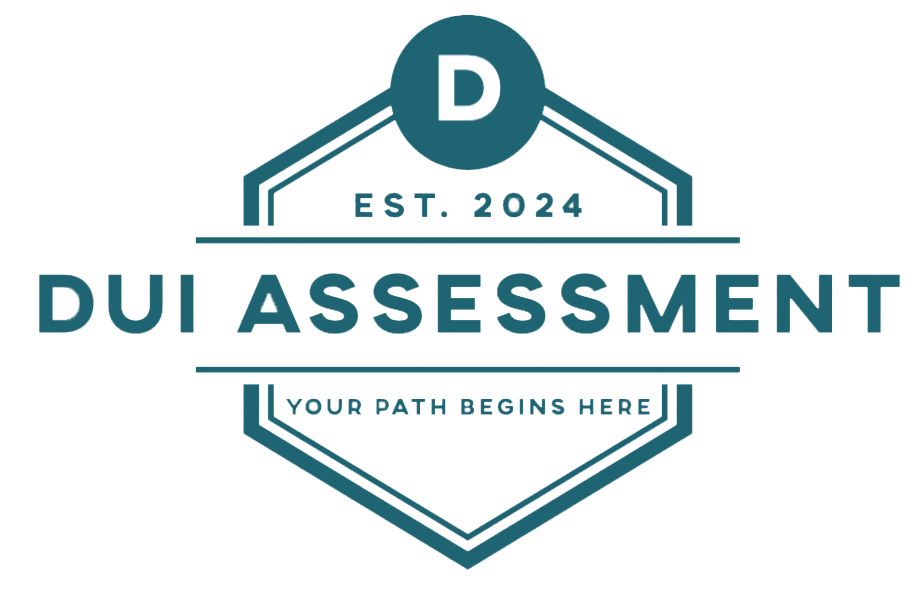When facing the consequences of a DUI charge, one of the critical steps in the legal and recovery process is completing an Alcohol Assessment Test for a DUI. At DUI Assessment, we understand how overwhelming this time can be for individuals and their loved ones. Our mission is to guide you through this journey, providing the knowledge, support, and tools you need to move forward.
Whether this is your first offense or a repeated incident, understanding what this test involves, why it’s important, and how it can impact your legal and personal life is crucial. In this guide, we’ll break down everything you need to know about the Alcohol Assessment Test for a DUI, what to expect, and how DUI Assessment can help you reclaim your life.
What Is an Alcohol Assessment Test for a DUI?
The Alcohol Assessment Test for a DUI is a professional evaluation typically mandated by a court, probation officer, or attorney after a person is charged with driving under the influence (DUI). The goal of the assessment is not to punish, but to understand the extent of a person’s relationship with alcohol and determine whether substance abuse treatment or education is necessary.
This test is conducted by a licensed substance abuse counselor or mental health professional. It includes a combination of a written questionnaire, a one-on-one interview, and sometimes psychological screening tools to assess drinking patterns, frequency of alcohol use, and history of substance-related issues.
The results of the assessment help determine the next steps—whether that’s education classes, outpatient treatment, or a more intensive rehabilitation program.
Why Courts Require the Alcohol Assessment Test
Courts mandate the Alcohol Assessment Test for a DUI to make informed decisions about sentencing, treatment referrals, and license reinstatement. The idea is to promote safety—for the driver, passengers, and everyone on the road—and to reduce the risk of future offenses.
This test helps identify whether the DUI was an isolated incident or part of a deeper pattern of substance use. A person who drinks socially and made one poor decision may receive different recommendations than someone who regularly drives while intoxicated or struggles with alcohol dependency.
Ultimately, the test is not meant to shame anyone but to create a realistic and individualized path to recovery and rehabilitation.
What to Expect During the Assessment
Understanding what to expect during your Alcohol Assessment Test for a DUI can make the process less intimidating. Here’s a breakdown of the common steps:
- Intake and Background Information
You’ll begin by filling out personal information, including your employment status, education history, medical history, and previous substance use. This information helps the assessor get a holistic view of your lifestyle.
- Questionnaire
The questionnaire is often standardized and asks about your alcohol and drug use, including:
- How often and how much you drink
- Situations in which you drink (social, alone, during stress, etc.)
- Past legal issues related to substance use
- History of treatment or counseling
You may also complete tools like the AUDIT (Alcohol Use Disorders Identification Test) or the Michigan Alcohol Screening Test (MAST).
- One-on-One Interview
A certified counselor will conduct an interview to discuss your answers in more depth. This conversation may include:
- Your understanding of the DUI incident
- Your attitude toward alcohol use
- Stressors or mental health factors
- Family history of addiction or substance use
- Group Therapy
Group therapy provides a supportive and understanding environment for individuals with substance use disorders. It can be beneficial to share experiences, build relationships, and learn from others going through similar struggles.
- Education
Educational sessions may cover topics such as the effects of alcohol on the body, coping mechanisms for stress, and relapse prevention strategies. These sessions aim to increase awareness and understanding of substance use disorders and provide practical skills for managing them.
- Family Involvement
Family members are often significantly impacted by an individual’s substance use disorder. Family therapy or education sessions can help families understand how they can support their loved one in recovery while also addressing any codependency or enabling behaviors.
- Peer Support
Peers who have gone through similar experiences can provide invaluable support and understanding for individuals in recovery. Peer support groups, such as Alcoholics Anonymous or Narcotics Anonymous, offer a safe space for individuals to share their struggles and receive encouragement from others.
- Therapy
Individual therapy is often an essential component of treatment for substance use disorders. Therapists can help clients address underlying issues that may contribute to their substance use, develop healthy coping mechanisms, and work on relapse prevention strategies.
- Medication Management
In some cases, medication may be used as part of the treatment plan for substance use disorders. Medications can help manage withdrawal symptoms and reduce cravings, allowing individuals to focus on their recovery journey.
- Assessment Results and Recommendations
After reviewing all information, the assessor provides a written evaluation. This report includes a summary of findings and recommended actions, such as:
- Alcohol education classes
- Outpatient or inpatient treatment
- Random alcohol testing
- Community service
- Follow-up counseling
This report is then sent to the referring court, probation officer, or attorney.
Types of Recommendations You Might Receive
The recommendations after an Alcohol Assessment Test for a DUI vary based on your individual situation. Here are some of the most common outcomes:
- Alcohol Education Programs
For first-time offenders or those with minimal alcohol use, alcohol education classes may be sufficient. These courses cover the dangers of drunk driving, the effects of alcohol on the body and mind, and responsible decision-making.
- Outpatient Treatment
If moderate substance use is identified, you may be referred to an outpatient program. This allows you to attend therapy sessions a few times a week while continuing with daily responsibilities like work or school.
- Intensive Outpatient Programs (IOPs)
These are more structured than basic outpatient services. Participants usually attend several sessions per week that include group therapy, individual counseling, and sometimes medication management.
- Inpatient or Residential Treatment
For those struggling with severe alcohol dependence, a residential program may be necessary. This type of treatment offers 24-hour care, medical support, and a controlled environment to start the recovery process.
- Support Groups and Counseling
Ongoing support may be recommended to help maintain sobriety. This might include Alcoholics Anonymous (AA), SMART Recovery, or one-on-one therapy with a licensed counselor.
How the Alcohol Assessment Impacts Your Legal Case
Your cooperation with the Alcohol Assessment Test for a DUI and your follow-through on recommendations can significantly impact your legal outcome. Judges often look favorably on individuals who take the initiative to complete treatment or education before sentencing. Some potential legal benefits include:
- Reduced fines or jail time
- Shorter probation periods
- Early license reinstatement
- Avoiding a criminal record (in some diversion programs)
On the other hand, refusing to complete the assessment or ignoring recommendations can result in harsher penalties. Courts take alcohol-related driving offenses seriously because of the danger they pose to public safety.
Common Myths About the Alcohol Assessment Test
Let’s clear up some misconceptions about the Alcohol Assessment Test for a DUI:
Myth 1: It’s Just a Formality
While it may seem like a checkbox to tick off, this assessment can influence your legal, personal, and professional future. Taking it seriously is in your best interest.
Myth 2: You Can “Pass” or “Fail” the Test
This isn’t a pass/fail scenario. The test is designed to help, not judge. The recommendations are tailored to support your recovery and reduce future risk—not label you.
Myth 3: It’s Only for People with a Serious Drinking Problem
Even if you don’t consider yourself to have a problem with alcohol, the test is meant to assess risk and recommend appropriate education or support, no matter your drinking habits.
How DUI Assessment Can Help You Through the Process
At DUI Assessment, we specialize in helping individuals and families navigate the aftermath of a DUI charge with compassion and professionalism. We’re here to guide you through every step of the process—from the moment you’re referred for an Alcohol Assessment Test for a DUI, through treatment planning, court reporting, and ongoing support.
Here’s how we can support you or your loved one:
- Confidential and Compassionate Care
We understand the shame, fear, and confusion that can come with a DUI charge. Our team treats every client with dignity and respect, creating a safe space for honest conversation.
- Licensed Professionals
Our assessments are conducted by experienced, certified counselors who are trained to identify substance use issues and tailor recommendations to each individual’s needs.
- Quick Turnaround
Time matters. We prioritize getting you scheduled quickly and delivering assessment results in a timely manner so your legal process isn’t delayed.
- Court-Approved Services
Our assessments and treatment programs are recognized and accepted by courts, attorneys, and probation offices across the region.
- Personalized Recovery Plans
If treatment is recommended, we help develop a plan that works with your schedule, lifestyle, and recovery goals—whether it’s outpatient therapy, education classes, or ongoing counseling.
Taking the First Step
Being charged with a DUI can feel like hitting rock bottom—but it doesn’t have to be the end of your story. The Alcohol Assessment Test for a DUI is your chance to turn a mistake into a moment of transformation.
At DUI Assessment, we believe in second chances. We’re here not only to help you meet legal requirements but to empower you with the tools and support you need to reclaim your life, rebuild trust, and restore confidence.
- About Us:
Our dedicated DUI assessment center stands as a beacon of hope and guidance for those navigating the aftermath of a DUI charge. We understand the weight of what you’re going through and are committed to walking with you through every step of this challenging journey. From the moment you reach out to us, our team is here to demystify the process, providing clear explanations of your options and outlining the next steps towards resolution. We believe in a holistic approach, recognizing that effective recovery and compliance go beyond merely meeting legal obligations.
Our goal is to support you in understanding the implications of your situation, assisting in developing personalized recovery plans that fit your unique circumstances, lifestyle, and goals. Whether it’s facilitating access to outpatient therapy, educational classes on substance use, or ongoing counseling services, we are here to empower you with the knowledge and resources necessary for making informed decisions about your future. At our center, we see a DUI not just as an end but as a pivotal point for positive change—guiding you towards reclaiming control over your life’s direction with dignity and confidence.
Ready to Get Started?
If you or someone you love has been charged with a DUI and needs to complete an Alcohol Assessment Test for a DUI, don’t wait. Reach out to DUI Assessment today. Our caring team is ready to help you take the next step toward healing and accountability. Don’t wait any longer and get your DUI under control today. Give us a call at 888-896-7893 or visit our website at www.dui-assessment.com to learn more.



